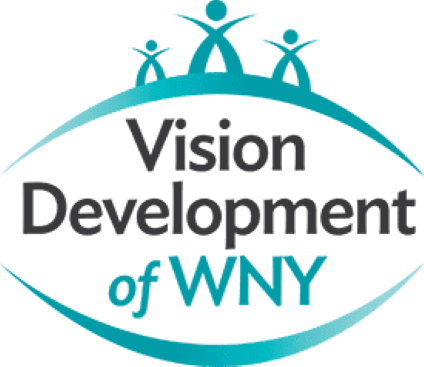Traumatic Brain Injury
Traumatic Brain Injury Rehabilitation
Each year, over 2.8 million Americans experience traumatic brain injuries (TBI), impacting nearly 1 in 100 people. A TBI can result in headaches, confusion, difficulty concentrating, and vision dysfunctions. Thankfully, vision rehabilitation can play a significant role in the recovery process when integrated with other treatment approaches.

What Is a Traumatic Brain Injury?
A traumatic brain injury (TBI) is a sudden injury that damages the brain. There are two primary types:
- Closed Head Injury: No skull penetration, but brain damage may still occur.
- Penetrating Head Injury: The skull is broken, directly impacting the brain.
TBIs are most commonly caused by falls (47%), especially in young children and those over 65. Other causes include blunt trauma (15%), car accidents (14%), and violent assaults (9%). TBI symptoms can include headaches, confusion, dizziness, memory issues, and personality changes. Since vision processing involves multiple brain areas, TBIs often lead to visual problems as well.

Rehabilitation After a Traumatic Brain Injury
TBI rehabilitation depends on the severity of the injury. Initially, patients may be treated in an intensive care unit. As recovery progresses, rehabilitation can take place in various settings, such as inpatient or outpatient facilities, home-based programs, day programs, and independent living centers. The rehabilitation process typically includes a personalized team of healthcare professionals, including neuro-optometric specialists, to help address unique needs and goals.
How Does TBI Affect Vision?
Research shows that 90% of TBI patients experience some form of vision disruption due to interrupted brain-eye communication. Common symptoms include:
- Blurred vision
- Eyestrain
- Sensitivity to light (photophobia)
- Reading difficulties
- Reduced peripheral vision
- Color contrast issues
- Vestibular dysfunction
- Reduced visual acuity
These issues can affect daily life, including work, education, and sports. Unfortunately, TBI-related vision problems may not be immediately detected, as they often appear later in the recovery process.
How Can a Neuro-Optometrist Help in TBI Recovery?
Optometrists are crucial in the TBI recovery process, working alongside other specialists to address vision-related issues that impact rehabilitation and quality of life. Neuro-optometric rehabilitation specialists, such as Dr. Dick O'Connor and Dr. Alyssa Fortuna at Vision Development of WNY, use advanced techniques to tailor treatment to each patient’s unique needs, based on the latest research in TBI recovery.
Neuro-Optometric Rehabilitation for TBIs
Neuro-optometric rehabilitation is a customized therapy designed to address visual deficits resulting from TBIs or other neurological conditions. Unlike general vision issues, TBI-related problems often affect eye teaming, tracking, and focus, which can interfere with reading and sports. Through specific eye-training exercises, neuro-optometric therapy retrains the brain to improve eye function. Early intervention following a TBI leads to better recovery and improved visual skills.
Dr. O'Connor or Dr. Fortuna use a range of techniques to enhance visual accuracy and function. This includes training eye tracking, focusing, and teaming skills, along with visual discrimination, handwriting, and spatial awareness. Patients also complete specialized home exercises to further strengthen visual skills, with regular follow-ups to monitor progress.

Should Every Brain Injury Patient See an Eye Doctor?
If you’ve suffered a TBI, seeing a neuro-optometrist is essential, especially if you notice changes in vision following your injury.
Traumatic Brain Injury in Children
Children with TBIs experience similar symptoms to adults, but due to their developing brains, the impacts can be different and may appear as they grow. Rehabilitation should address physical, cognitive, and emotional challenges, providing strategies to help children optimize their abilities. This may include physical therapy, occupational therapy, speech therapy, and neuropsychological testing.
The main difference between a traumatic brain injury (TBI) and an acquired brain injury (ABI) is how they occur:
1. Traumatic Brain Injury (TBI): This type of brain injury is caused by an external force or impact to the head. Examples include:
-
- Falls
- Motor vehicle accidents
- Sports injuries
- Assaults or other blows to the head
TBIs are generally associated with direct trauma, which can lead to bruising, bleeding, or damage to brain tissue due to the force applied to the skull.
2. Acquired Brain Injury (ABI): ABI refers to any brain injury that is not hereditary, congenital (present from birth), degenerative (progressively worsening), or related to birth trauma. This broader category includes TBIs but also encompasses other types of brain injuries caused by internal factors, such as:
-
- Strokes (including ischemic and hemorrhagic strokes)
- Oxygen deprivation (e.g., near-drowning or suffocation)
- Substance abuse or poisoning (e.g., drug or alcohol toxicity)
- Medical conditions (e.g., brain tumors, infections like meningitis, or diseases like Alzheimer’s and Parkinson’s)
Unlike TBI, ABIs can occur due to internal or non-traumatic causes and may impact brain function through metabolic, vascular, or toxic changes within the brain.
How Vision Development of WNY Can Help
Rehabilitation After a Traumatic Brain Injury
Dr. O'Connor, Dr. Fortuna, and our compassionate team at Vision Development of WNY are dedicated to providing Neuro-Optometric Rehabilitation Services to our patients. We specialize in treating Traumatic Brain Injuries with Intensive therapy designed to restore visual function and expedite the recovery process.
We proudly serve Elma, Buffalo, Southtowns, Western New York, and beyond.
Get Started Today – There’s Hope in Sight!
- Acquired Brain Injuries: An acquired brain injury (ABI) ) is any type of brain injury that happens after birth. It is generally caused by trauma or injury to the head, which can affect not only your brain but your eyes as well. Fortunately, neuro-optometric rehabilitation can help.
